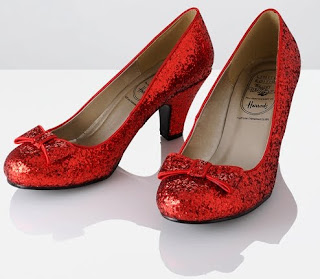For the past dozen years my denomination, the United Church of Christ, has used the motto "God is still speaking . . . " So it makes sense that I might be drawn to a book titled Hearing God in Conversation. After all, if it's true, if God is indeed still speaking, who wouldn't want to hear what God is saying?
I wouldn't characterize Samuel Williamson's book as a how-to manual, despite it's half-title (How to Recognize His Voice Everywhere). He is very careful throughout the book to offer up caveats. For instance, in a chapter on learning how to recognize God's voice, Williamson warns that we need to remember that "it isn't always God's voice" that we hear. And that we need to learn "to distinguish the voice of God from the voices of sleep-depravation, stress, or fleshly desires." (53) He even echoes Charles Dickens at one point when he writes that what we think comes from God may really come "from a poorly digested potato . . . ." (Ibid)
The book is well-written, and exhibits a real sense of humor at times, even a bit of self-deprecation now and then. And while it is clear discerning God's voice is a very serious matter for Williamson, he does not take himself too seriously. In a chapter called "Brainstorming with God" he ends his description of this process of divine-human interaction with a cautionary note: "don't get hung up on trifles. Not all decisions in life call for divine consultation." (85)
All that said, though, I did find myself rather annoyed by Williamson's exclusivistic God language. He, him, his . . . never once does God get referred to using feminine pronouns. Even gender-neutral words are seldom employed for the Holy One. Reading Williamson's book leaves one with the distinct impression that hearing God's voice is like listening to a loving and wise grandfather. In fairness, Williamson does elaborate on a wide variety of channels through which God communicates. But in general, the male imagery dominates.
As a progressive Christian I also would note that I have some issue with Williamson's approach to the scriptures. "It is only in Scripture," he writes at one juncture," that we can be sure, absolutely certain, that we have real truth, from God's lips to our ears." (54) That is not how I understand the Bible--not at all. Williamson also suggests that God wrote the Bible. I realize he doesn't mean that the Holy One literally took pen in hand and scratched out Genesis, but still, this does not jive with my understanding (which of course, could be wrong) that the scriptures were written by human beings, inspired by their encounters with God.
Still, for all our differences of theology--and some of them are significant-I did find Williamson's book helpful. I especially appreciated his emphasis on prayer needing to grow out of our relationship with God. "In seeking to hear God," he writes, "we are seeking to know [God]--not just to know about God but to meet [God] and to know [God] as [God] really is." (131)
Williamson's book is not for everyone. Some folks sharing my basic theological positions, will be so put off by the exclusive language and the approach to scriptures that Williamson takes, that they will be unable to find any of the nuggets of wisdom scattered throughout this work. For me, it proved to be a reminder that I should never close myself off to listening to those with very different views and understandings, for sometimes they have important things for me to hear and to learn. Sometimes they may even convey a word from God--who is, after all, still speaking.
Disclosure of Material Connection: I received this book free from the author and/or publisher through the Speakeasy blogging book review network. I was not required to write a positive review. The opinions I have expressed are my own. I am disclosing this in accordance with the Federal Trade Commission's 16 CFR, Part 255.



